Outdoors, Jakarta’s heat and humidity were oppressive. Inside the 6th World Peace Forum (WPF), most delegates were in heated agreement that violent extremism was a serious, global problem. Muslim delegates from dozens of countries were unapologetically hostile towards Islamists who promote terrorism and brutality, to the slight discomfort of a few western academics. As the only Jewish participant, I was treated by the Indonesian and Malaysian hosting organisations as a cherished colleague, and was somewhat overwhelmed by the interest of Muslims from countries with negligible Jewish communities in talking with me about contemporary antisemitism, Judaism and Israel. Hovering above the Forum, which was designed to encourage interfaith dialogue, was the shadow cast by the debate concerning the Governor of Jakarta, Ahok, and what a non-Muslim could or couldn’t, or should or shouldn’t, say on Islam. Prominent Indonesian speakers reorganised their session times due to crisis meetings involving politicians and the leaders of major civil Islamic groups, and non-Muslim conference attendees were advised where and when we shouldn’t be too obvious in our non-Muslimness.
After the Forum concluded, I was on a mission to do just that – be obvious in my non-Muslimness, in meetings with Islamic scholars and leaders who wanted to talk with a Jewish person. My first post-WPF event, I had thought, was a one-on-one meeting with a leading figure in the world’s largest Muslim membership organisation, Nahdlatul Ulama (estimated membership 55 to 60 million). I arrived to a welcome by hundreds of praying and singing students and lecturers from his Pesantran, an invitation to give an impromptu address on Judaism, participation in a ceremony in which a baby received its first hair cut and a sumptuous meal prepared to meet my (kosher) requirements.
A late night, then on an early morning flight to Semarang. A seminar with cluey, switched-on, leaders at the Central Java branch of N.U. Questions on Israel – many questions on Israel. I had the genuine impression we were all there to learn and listen, not to badger or bully. Then a long drive to Salatiga, where my host was an Islamic scholar who once had a part-time gig as a presenter on Cairo Radio. We went from campus to campus for meetings with scholars and teachers and a session with religious studies students. A giant banner advertising a seminar on ‘The Judeo-Islamic Encounter in History’ and a room filled with hundreds of students should have alerted me to the fact that a serious speech was expected. As I organised my thoughts, a thorough, brilliant exposition of Judaism through Islamic lenses was delivered by their professor, then a second speaker outlined just about all you need to know about Jewish history. I tried to fill in the gaps and then fielded questions. Dozens of hands shot up, and I was asked detailed questions on Israel and the Middle East, Jewish religious practices, the US elections and how I understood Quranic verses and other Islamic sources on the Jewish people. The laughter-filled photo session was cut short after an hour, for a cross-island drive to Kediri. To pass time in the drive, I taught the two highly-credentialed scholars of Islam, graduates of Al Azhar University in Cairo, to sing the Hebrew verses of Psalm 133, ‘How good it is that we are sitting together as brothers and sisters’. I was given a further reminder that all my Indonesian friends have great singing voices and the quieter my voice, the better.
Late evening arrival at Kediri, where hundreds of young women, and a dozen or so men, had waited patiently for our storm-delayed arrival. Speaking on ‘Searching for Peace in the Middle East’, then facing an inquisition on Judaism, Jews and Muslims, Palestinians, human rights, blasphemy laws and much more, before an hour and a half of ‘selfies with the Jew’. As with all the students I encountered, they were polite but frank, friendly but questioning, serious but always smiling.
Next step Jombang. Over 1,000 religious studies students. Inspiring address on learning from and about others by the Sheikh who ran the sprawling complex of Islamic campuses. My talk was on religion and peace. A barrage of questions relating to Islamic texts and to Middle East politics, including some where the premise had clearly been based on material on overtly antisemitic websites, and others from sensationalist news media. The Sheikh instructed his students – ‘You must learn that you can’t trust the media. CNN, Al Jazeera do not help you understand reality’. At most events, I had to allocate time for countless photographs (thank you, Facebook). At this event, I was asked in addition to sign autographs – on books, clothing, even on bare skin. When I resisted, I was informed that local folk culture said it was ‘good luck’ and that it was bad form for me to refuse. I escaped after a handful of, well, signed hands.
Last night of my visit, in scenic Surabaya. Mistaken for a VIP group of industrialists, my host, translator and friend and I were treated to a personal tour and dinner reception at a private museum glorifying tobacco products. As a non-smoker who was surviving on vegan offerings, (as I only eat kosher food) I left it to my colleagues to enjoy the experience on my behalf. On the drive to the airport, we all sang along to Harry Belafonte on YouTube singing Hava Nagila. Probably not the way all trips to the world’s most populous Muslim-majority country end, but it seemed appropriate for mine.
Got something to add? Join the discussion and comment below.
Get 10 issues for just $10
Subscribe to The Spectator Australia today for the next 10 magazine issues, plus full online access, for just $10.
You might disagree with half of it, but you’ll enjoy reading all of it. Try your first month for free, then just $2 a week for the remainder of your first year.

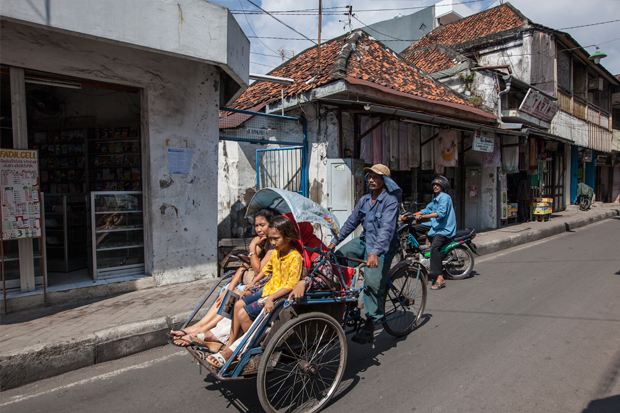
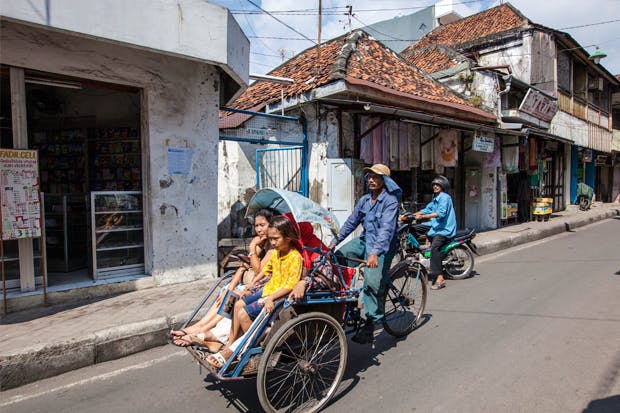
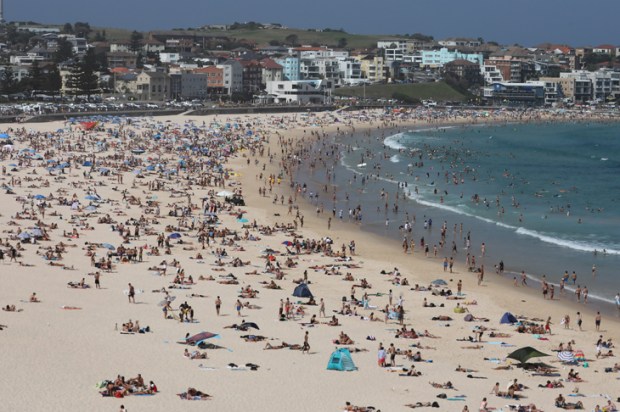
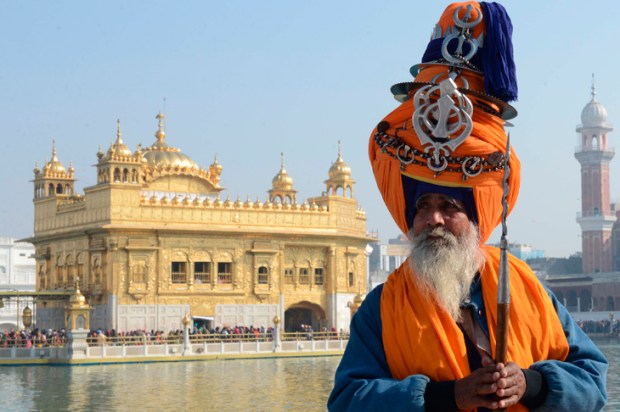
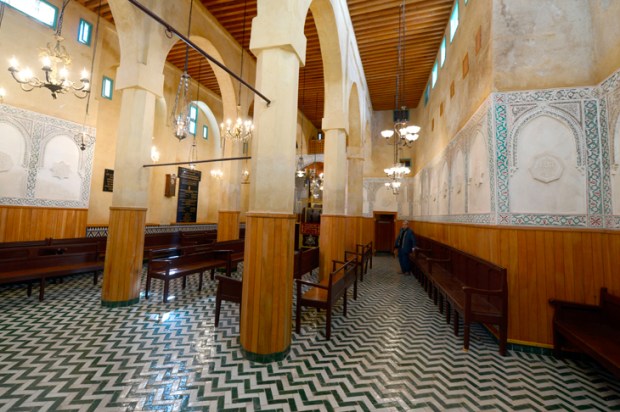
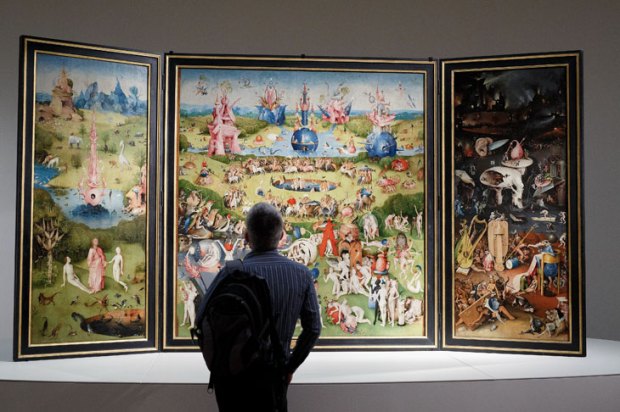
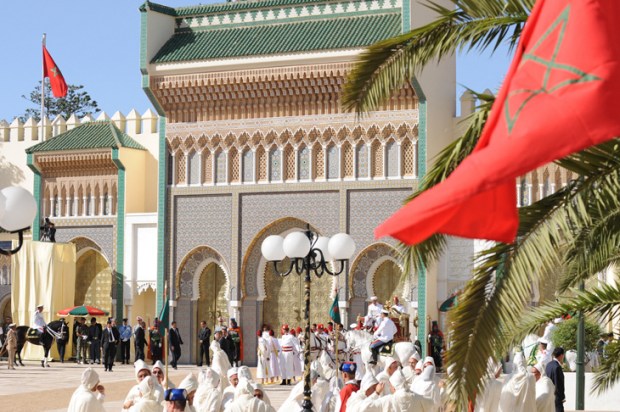






Comments
Don't miss out
Join the conversation with other Spectator Australia readers. Subscribe to leave a comment.
SUBSCRIBEAlready a subscriber? Log in